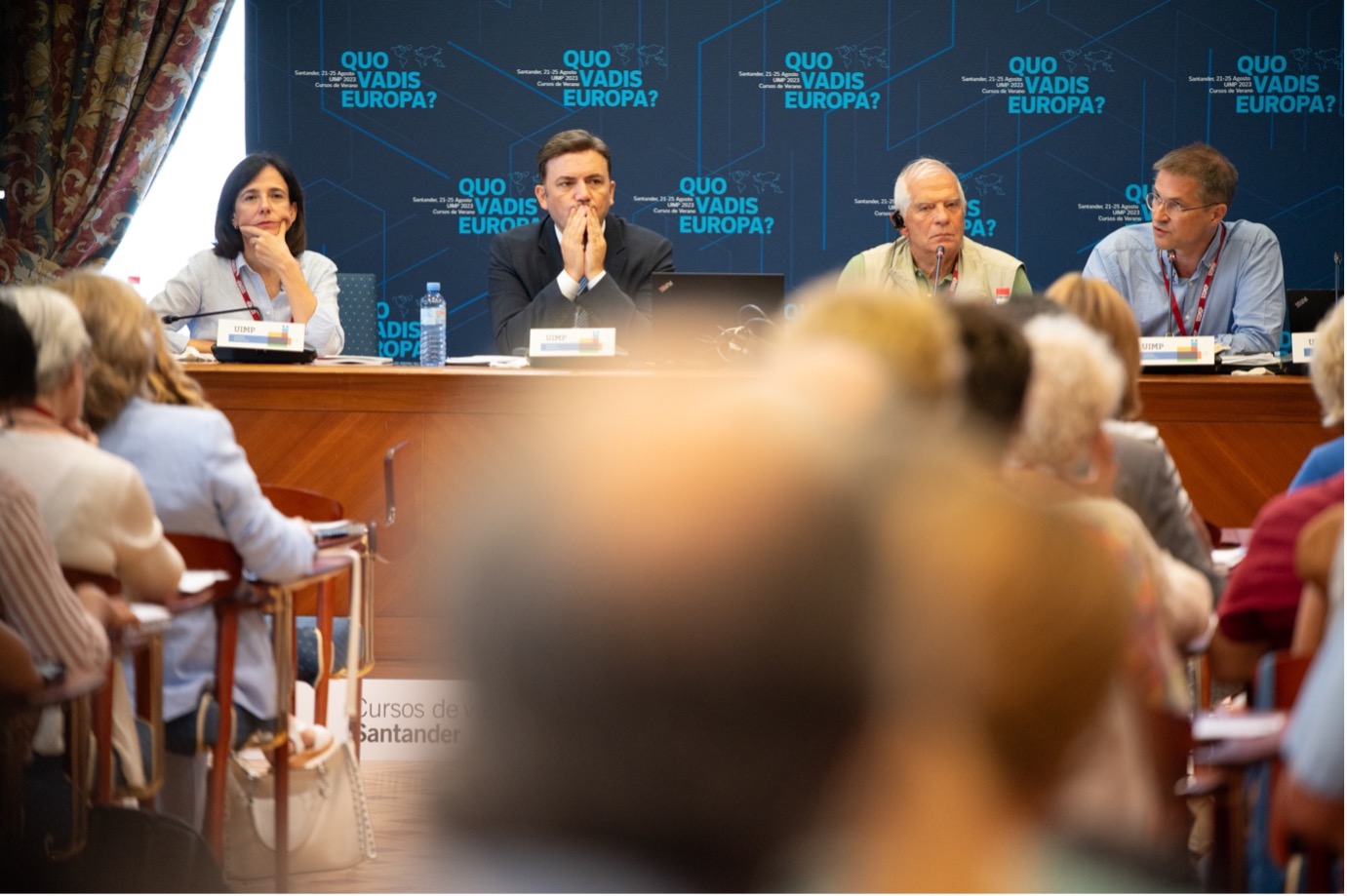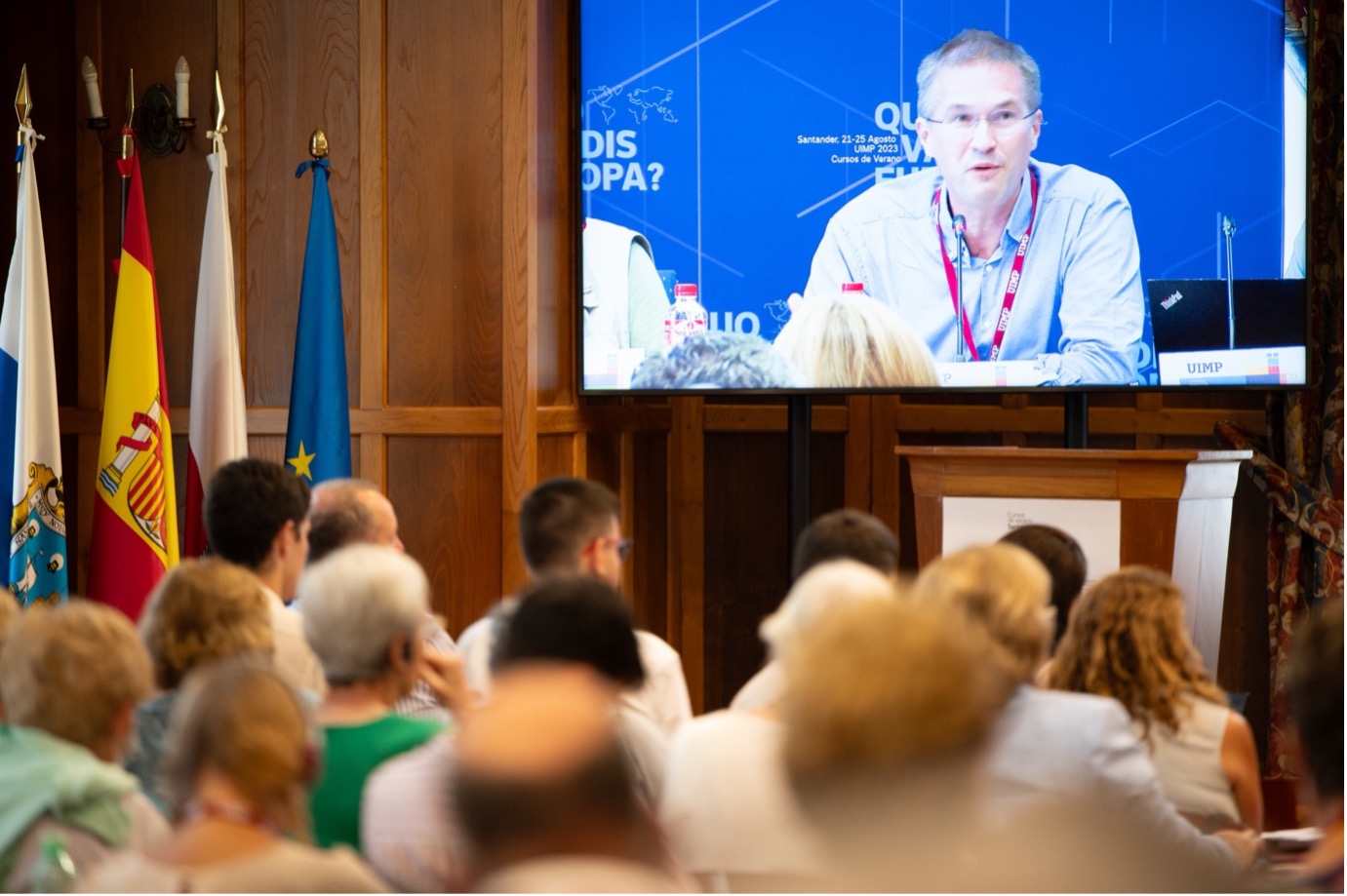Santander – ESI at panel discussion on the Western Balkans: “Quo Vadis, Europa?”

ESI’s Gerald Knaus was invited to participate in the panel discussion “Enlargement and Neighbourhood. The Western Balkans on their way towards the European Union” at Quo Vadis, Europa? 2023, which took place at the Universidad Internacional Menéndez Pelayo (UIMP).
“Quo Vadis” is a course on the future of the European Union. It was led by Josep Borrell, High Representative of the Union for Foreign Affairs and Security Policy/Vice-President of the European Commission. Political leaders from EU Member States, Ukraine and other candidate countries, MEPs, university professors and experts on the most relevant geopolitical issues participated in the course.

Gerald criticised the EU’s inconsistent approach to enlargement, arguing that this has stalled progress for many aspiring member states. Despite important reforms made by Western Balkan countries, as well as impressive advancements by Ukraine and Moldova over the past year, the EU’s wavering commitment to enlargement has hindered the accession process.
Gerald emphasised the case of Ukraine whose government has continued pursuing reforms and EU integration despite the enormous challenges of war. He argued that the Western Balkan countries lack comparable momentum and inspiration. He therefore argued that the EU must strengthen ties with the Western Balkan 6, offering them a credible path to membership to build trust. To achieve this the four freedoms (goods, services, capital, and people) should be extended to the Balkans, Ukraine, and Moldova. Gerald concluded that given the high stakes the EU will need to act boldly in 2023.
Gerald debated with Olta Xhaçka, Minister of Foreign Affairs of Albania, Bujar Osmani, Minister of Foreign Affairs of North Macedonia, and Áurea Moltó, Executive Director for Foreign Policy. The panel was moderated by Esther Orsini-Rosenberg.
